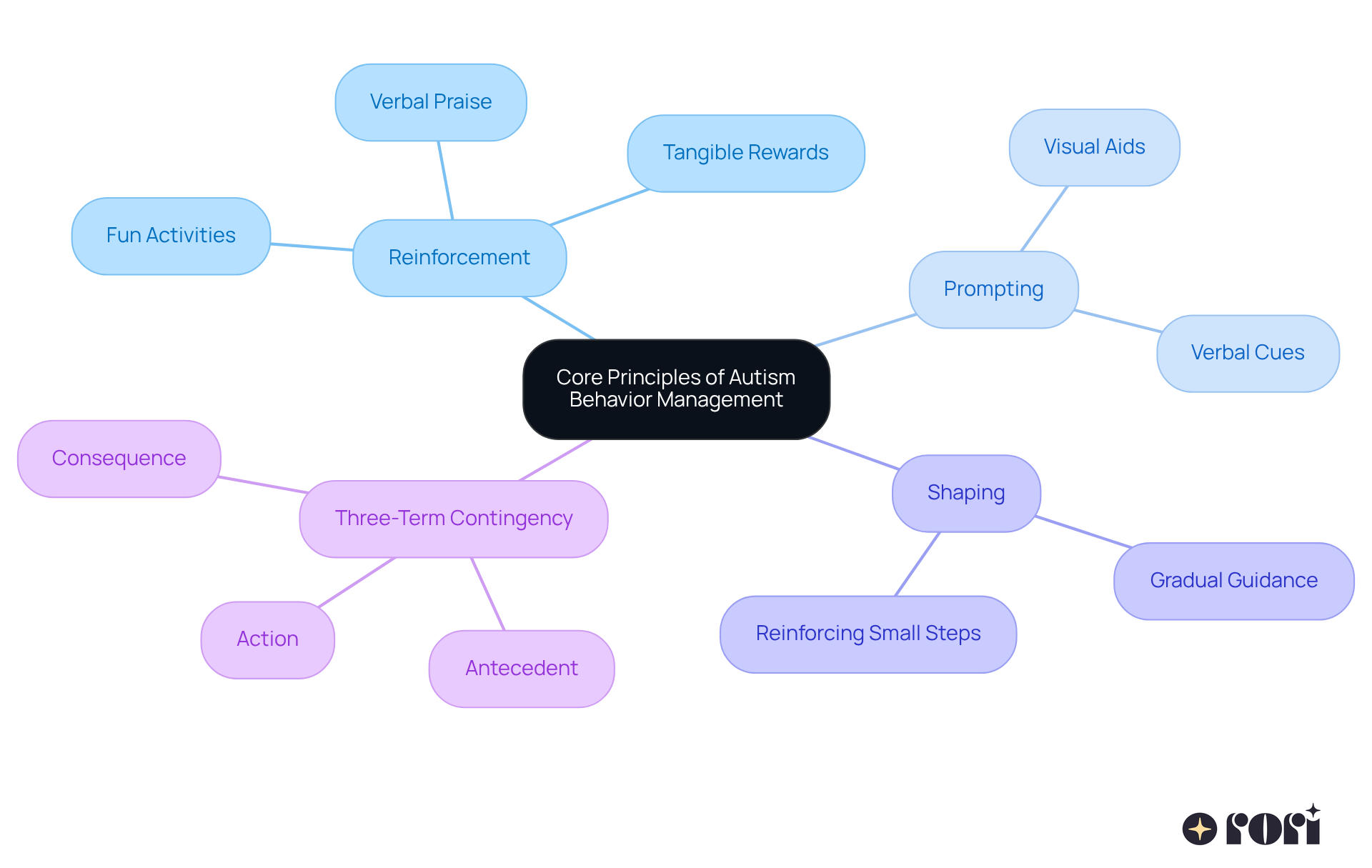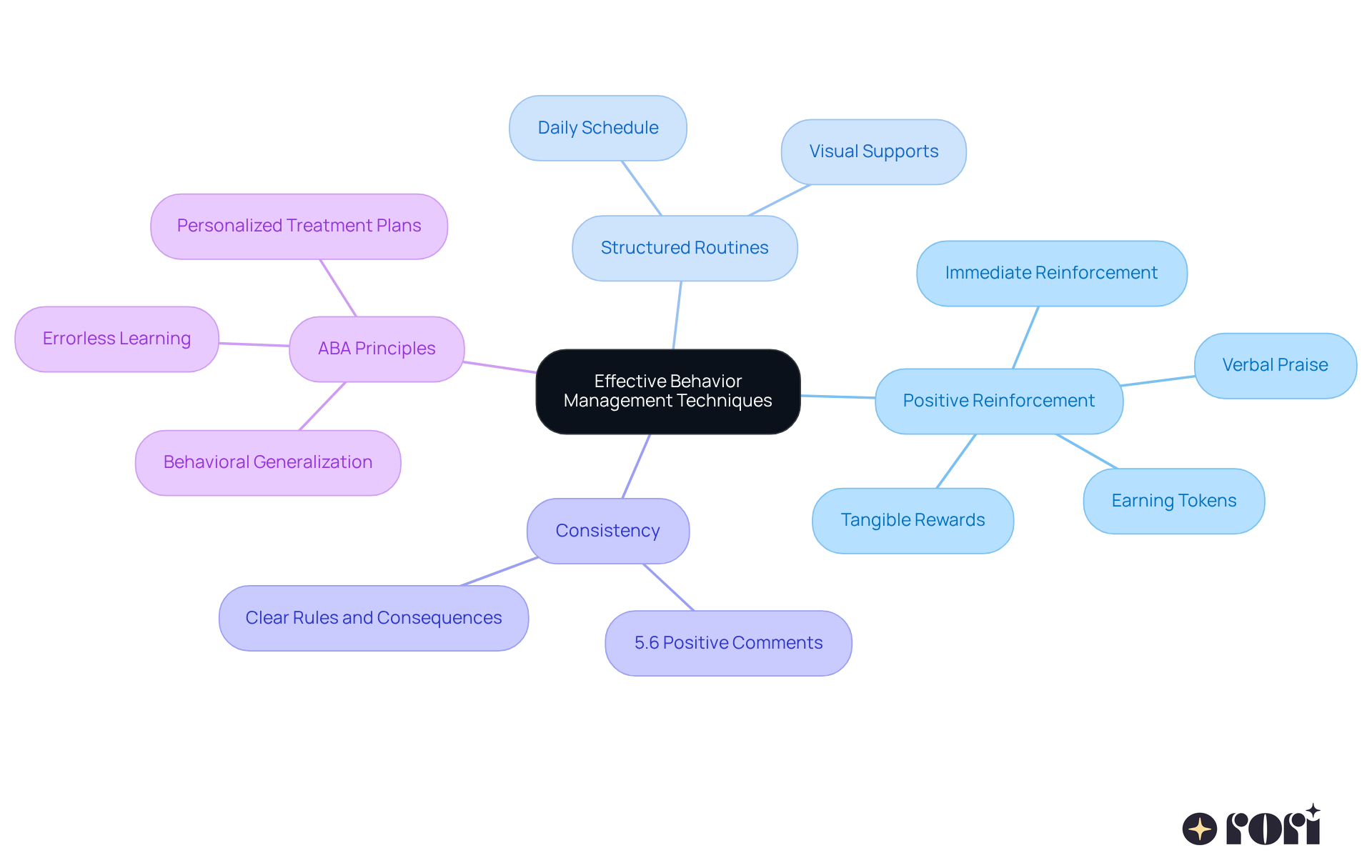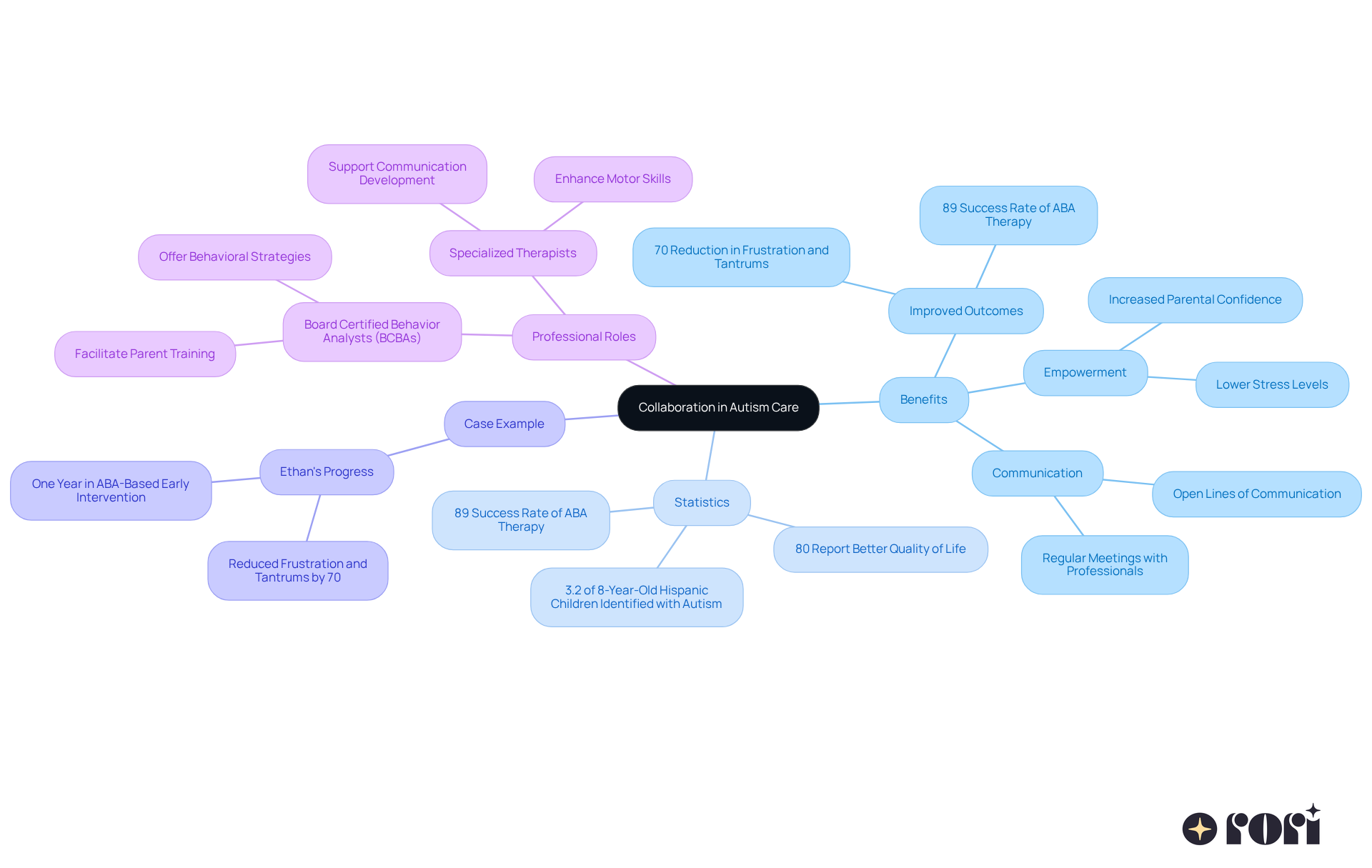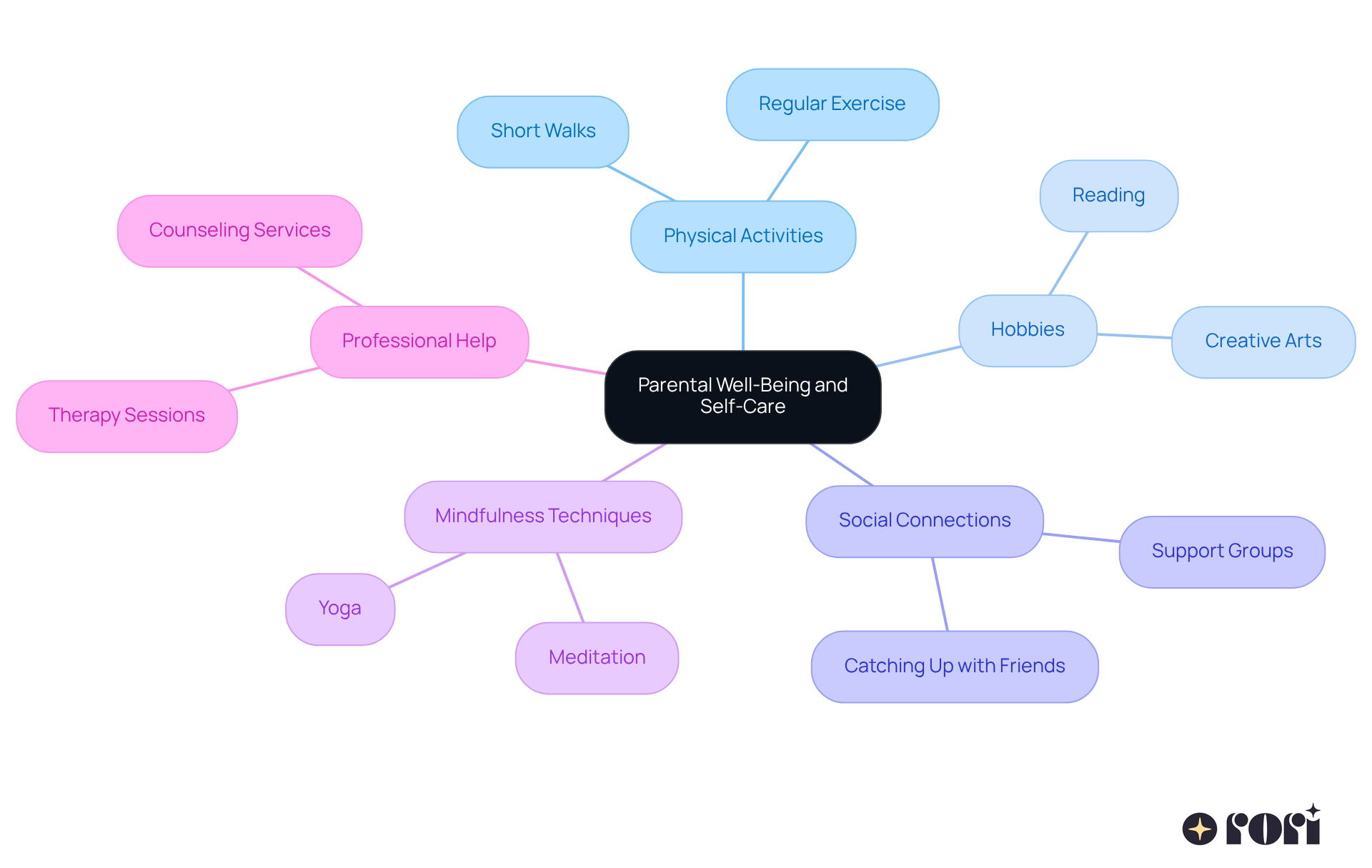Understanding the complexities of autism can feel overwhelming for parents. But don’t worry-mastering effective behavioral strategies is key to nurturing positive growth in your child. In this article, we’ll explore four essential techniques that not only enhance your child’s learning experience but also empower you with the knowledge to navigate this journey together.
So, how can you ensure you’re implementing these strategies effectively while also taking care of yourself? 🤔 This question opens up a pathway to not just supporting children with autism, but also fostering a healthier family dynamic. Let’s explore this together!
It is crucial for parents of kids with autism to understand the basics of behavioral strategies for parents autism. One key strategy is reinforcement, which means giving positive outcomes for desired actions to encourage them to happen again. This could be anything from verbal praise to tangible rewards or fun activities, all tailored to what your child enjoys. Research shows that reinforcement-based interventions work effectively in about 85% of published case studies, highlighting just how crucial they are in autism care.
Then there's prompting, which involves giving cues or hints to help your child perform a desired action. This can really boost their learning process! Techniques like visual aids or verbal cues have been shown to enhance engagement and participation in various activities. For instance, a case study on using chaining to teach multi-step tasks shows how breaking down complex actions into smaller steps can make learning easier and improve task completion rates.
Shaping is another important concept. Here, caregivers gradually guide their children toward more complex behaviors by reinforcing small steps along the way. For example, if your child is learning to communicate, you might start by reinforcing any attempt at vocalization, then gradually encourage clearer speech before offering reinforcement. This approach not only builds skills but also boosts your child's confidence. The three-term contingency - antecedent, action, and consequence - plays a vital role in shaping behaviors, helping you understand the context of your child's actions.
Getting familiar with these principles allows you to create a supportive environment that encourages positive behavior changes. As experts say, "the effectiveness of a reinforcer depends on its value to the individual receiving it," which underscores the need for personalized approaches in ABA therapy. By using these techniques, you can enhance your child's learning experience and implement effective behavioral strategies for parents autism to promote lasting behavioral growth. Plus, Rori Care emphasizes the importance of personalized planning and measurable goals in program development, ensuring that each child's unique needs are met. Continuous assessment and adjustment of strategies are also key, as they allow you to tweak your approach based on your child's progress. Educating yourself as a caregiver empowers you, giving you the knowledge and skills to support your child's behavioral goals effectively.
Let’s explore this together! We're here to help you every step of the way!

Helping kids with autism can feel like a journey, and using behavioral strategies for parents autism is a significant part of that. One standout approach is positive reinforcement. Imagine your child earning tokens for their good behavior - those little rewards can really motivate them! It’s all about encouraging those positive actions, right? Plus, when you create clear and consistent routines, it makes a world of difference. A structured daily schedule helps kids know what to expect, which can really ease anxiety and reduce resistance. Visual supports like charts and schedules can also be great tools to help them understand and follow along.
Now, let’s talk about consistency. It’s super important for parents to keep rules and consequences clear and predictable. This creates a safe space where kids can thrive emotionally. Did you know that research suggests a ratio of 5.6 positive comments for every criticism? That’s the sweet spot for optimal performance! It really shows how crucial a supportive atmosphere is. By employing behavioral strategies for parents autism, caregivers can effectively manage behaviors while also nurturing their child’s growth and independence. And here’s a little tip: empowering yourself with ABA principles can really enhance your ability to provide informed support. This leads to better behavioral outcomes and a more harmonious home environment.
Let’s explore this together! Remember, you’re not alone on this journey.

Navigating autism care can be quite a journey for caregivers, and active collaboration with professionals like Board Certified Behavior Analysts (BCBAs) and specialized therapists at Rori Care makes a world of difference. Regular meetings and open lines of communication help guardians really understand their child's behaviors and needs. For instance, a BCBA can offer behavioral strategies for parents autism that caregivers can easily apply at home, creating a seamless connection between therapy sessions and daily routines.
This teamwork not only empowers guardians but also boosts the effectiveness of the young person's treatment plan. Research shows that when families actively engage in their child's therapy, they often see better outcomes, including improved communication and social skills. By collaborating with experts, caregivers can ensure that the behavioral strategies for parents autism are specifically designed to address their child's unique strengths and challenges, leading to truly impactful results.
Did you know that ABA therapy has an impressive success rate of over 89% in enhancing key developmental areas? This really highlights the value of collaboration! Plus, studies reveal that more than 80% of families report a better quality of life and lower stress levels after joining early intervention programs. It’s clear that parental involvement is a game changer.
As experts in the field often say, "Effective collaboration between families and professionals is essential for achieving meaningful progress in therapy." Take Ethan, for example. After just one year in an ABA-based early intervention program at Rori Care, he managed to reduce his frustration and tantrums by 70%! That’s a tangible benefit of these partnerships.
So, let’s explore this together! If you’re a caregiver, remember that you’re not alone on this journey. We’re here to help you every step of the way!

Prioritizing parental well-being is so important for effective autism care! 🌟 Taking time for self-care can really boost both your mental and physical health. Think about carving out moments for:
These little things can help build your emotional resilience.
Mindfulness and relaxation techniques, like meditation and yoga, can be fantastic for managing stress and improving your overall well-being. If you ever feel overwhelmed, remember that seeking professional help is a great step. Mental health professionals can offer valuable support and coping strategies that make a difference.
By nurturing your own needs, you’re not just helping yourself; you’re creating a more positive environment for your children. This can lead to better outcomes for the whole family! Let’s explore this together and see how we can support each other on this journey!

Understanding and implementing effective behavioral strategies is so important for parents of children with autism. By focusing on core principles like reinforcement, prompting, and shaping, caregivers can create a nurturing environment that really helps foster positive behavior changes. These strategies not only support your child's learning and development but also empower you as parents to take an active role in their growth.
Key insights from the article highlight the importance of:
Utilizing positive reinforcement and establishing clear routines can significantly enhance your child's emotional security and learning outcomes. Plus, engaging with specialists ensures that tailored strategies are in place to meet each child's unique needs, leading to improved communication and social skills.
Ultimately, prioritizing self-care and mental health for parents is crucial on this journey. A well-supported caregiver is better equipped to provide a positive environment that benefits the entire family. By embracing these strategies and seeking support, you can navigate the complexities of autism care with confidence, ensuring not only your own well-being but also fostering a brighter future for your children. Let’s explore this together!
What is reinforcement in autism behavior management?
Reinforcement involves giving positive outcomes for desired actions to encourage them to happen again. This can include verbal praise, tangible rewards, or fun activities, tailored to what the child enjoys.
How effective are reinforcement-based interventions in autism care?
Research shows that reinforcement-based interventions work effectively in about 85% of published case studies, highlighting their importance in autism care.
What is prompting and how does it help children with autism?
Prompting involves giving cues or hints to help a child perform a desired action, which can boost their learning process. Techniques like visual aids or verbal cues enhance engagement and participation in activities.
Can you explain the concept of shaping in autism behavior management?
Shaping is a technique where caregivers gradually guide their children toward more complex behaviors by reinforcing small steps along the way. For example, reinforcing any attempt at vocalization before encouraging clearer speech.
What is the three-term contingency in shaping behaviors?
The three-term contingency consists of antecedent, action, and consequence, which helps caregivers understand the context of their child's actions.
Why is it important to personalize behavioral strategies in autism care?
Personalization is crucial because 'the effectiveness of a reinforcer depends on its value to the individual receiving it.' This underscores the need for tailored approaches in Applied Behavior Analysis (ABA) therapy.
What role does continuous assessment play in autism behavior management?
Continuous assessment allows caregivers to adjust strategies based on their child's progress, ensuring that the approach remains effective and meets the child's unique needs.
How can caregivers empower themselves in supporting their child's behavioral goals?
Educating themselves about behavioral strategies gives caregivers the knowledge and skills needed to effectively support their child's behavioral goals.